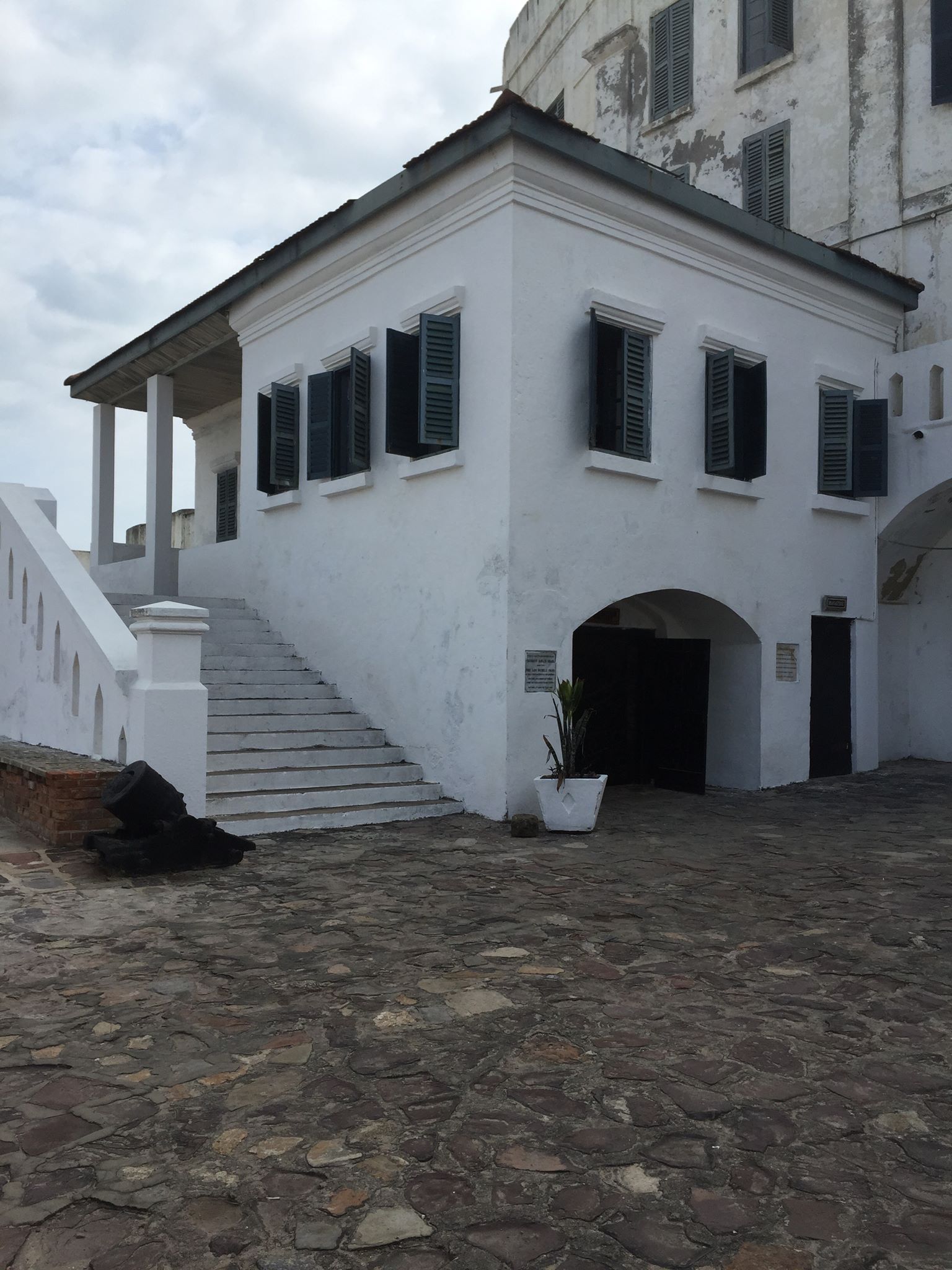President Jennings gave these opening remarks to an online meeting of Executive Council on June 8:
Good morning. I’m glad to be with you all this morning and I want to to welcome, for the first time, people from across the Episcopal Church via live stream on YouTube.
Twice in recent years, I have traveled to Cape Coast, Ghana, and both times, I visited Cape Coast Castle, where thousands of enslaved Africans were held and then forced to board ships bound across the Atlantic Ocean. Perhaps you know about this fort, which was home to an Anglican church built directly above the dungeons where enslaved African men were held. The women were held on the other side of the fort, closer to the sleeping quarters of the white men who enslaved them.
At this moment in the United States, when people across the nation are rising up against racial injustice, police brutality and systemic racism, we must not turn away from this deeply painful history, our history. There in that fort, our church literally stood on the bodies of enslaved black men, and white people on both sides of the ocean who proclaimed our faith profited mightily, building fortunes that have benefitted our church for centuries.[1]
Especially now, we must not turn away from that Anglican church built over the slave dungeon. It is an egregious symbol of what happens when a predominantly white institution like ours values its proximity to power and wealth more than it values the gospel. In our case, what has happened is centuries of institutional complicity in slavery, in Jim Crow, in mass incarceration, and the economic and social practices of systemic racism.
Too often, we are too proud that eleven presidents have been Episcopalians, that presidents and members of Congress and Supreme Court justices worship at our churches, and that we bury them with pomp and circumstance when they die. We are proud that, in Episcopal pews across the country, you can find civic leaders and business tycoons and media superstars. We still like our access to power and wealth.
Now, there are many places in the church where the great wealth to which we have access is being used for great good. And we are justifiably proud that our history also includes prophets like Absalom Jones, Pauli Murray, Thurgood Marshall, and the martyr Jonathan Daniels. But in recent years, our identity as the church of the establishment has sometimes hindered our collective willingness to speak the truth about racist, xenophobic, anti-democratic policies and actions and the brutal policing and enforcement actions and practices that undergird them. Like the Anglicans who worshipped at Cape Coast Castle, we have helped normalize oppression and racism and the people who enforce it, because we have been too comfortable with our relationship to temporal power.
Last week, we published on the House of Deputies website an essay by Dr. Reuben Varghese, a member of the Task Force of the Theology of Social Justice Advocacy, created by General Convention Resolution 2018-A056. Reuben is also a member of St. John’s, Georgetown in the Diocese of Washington. In this essay, Reuben says that too often, white Episcopalians behave as if our baptismal promises—which all concern ways to dismantle systemic and institutional racism—are a choice, not a mandate.
“The question for us,” he writes, “is how we as members of the Episcopal Church help each other to strive for justice, not making it optional to do something to help dismantle systemic and institutional racism.
“Lamentations are part of our tradition,” he continues. “God has heard this lamentation from the oppressed over millennia: ‘How long, Lord, how long?’ I am changing this,” he writes, “to ‘How long, white Episcopalians, how long?’ That is, how long before white Episcopalians take on the emotional labor of those oppressed by white supremacy in the church and outside of it because it is your bound and right duty as part of the baptismal covenant, as baptized persons. There are many who are weary, including me. So I ask again: ‘How long, white Episcopalians, how long?’” Thank you, Reuben.
It has been a long time since Anglicans worshipped in that church built atop the slave dungeon. Let us not take our eyes off it until we have repented of the evil done there, and countless other places much closer to home, on our behalf. There is nothing more important than this on our Executive Council agenda.
[1] Resolution 2006-A123 has guided important work, particularly in the Diocese of New York, in coming to terms with the economic legacy of slavery that benefits us to this day.
photo of Cape Coast Castle by Jim Naughton


